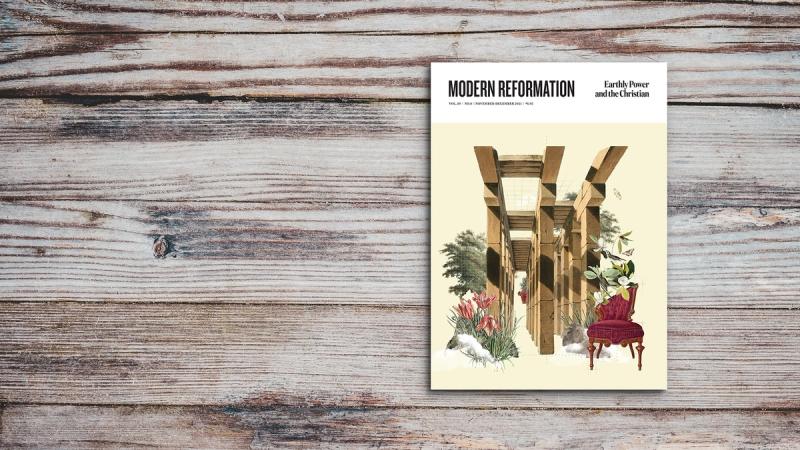Not contentedness but more power; not peace but war; not virtue but fitness.” So wrote Friedrich Nietzsche in his Der Antichrist. For most Christians, such a bold assertion will sit ill at ease for them, to understate the matter. This push for power by means of might and combat is not easy to marry with Jesus’ instruction to turn the other cheek or Paul’s instruction to live peaceably with all inasmuch as we are able. Nietzsche knew that—hence its title. Yet, were we to describe American Christians’ beliefs about power solely by their actions in the public sphere, we might end up describing something alarmingly close to Nietzsche!
The question of Christian engagement in culture and politics is a vexing one and always has been. At the theoretical and practical levels, agreement among Christians is hard to achieve. But, of course, this is no reason to give up the task. It is rather a reason to double the effort. So, in this issue of Modern Reformation, we look at Christians and earthly power at both levels.
In a provocatively titled piece, Dr. John Halsey Wood Jr. makes a case for why we need Saint Augustine more than Saint Kuyper now. Evangelicals have wrestled long and hard with how best to approach cultural engagement in America, and Abraham Kuyper’s Calvinistic approach to the question has had great purchase on evangelical ideas. Yet, Dr. Wood argues, despite Kuyper’s near unprecedented genius, his approach to the question falls short of the prudence offered by Augustine for our twenty-first-century American context.
Today, any discourse on the notion of power is fraught with difficulty, particularly in relation to public and civil life. Notwithstanding the problems, Dr. Kristen Deede Johnson tackles the question of power, politics, and Christian public engagement head on. What if we reframed the discussion theologically? What if power weren’t assumed to be essentially bad? What if political power weren’t assumed to be the only kind of public engagement? Can Christians inhabit a different kind of posture for public engagement?
It’s not only Christians in America, however, who wrestle with these issues. In his article, Dr. Simon Jooste tells the story of South Africa’s Cape Town, beginning with the Dutch colonization in the mid-seventeenth century. He details the complex and often sad history of the role that a mix of Pietism, Revivalism, and a kind of Calvinism played in the rise of apartheid. He then looks at the current role of critical Marxist theories and liberation theologies in the postmodern vision of social justice for oppressed identity groups (LGTBQ+). In his compelling history of Cape Town, Dr. Jooste provides lessons for us in the United States, and helps us by bringing some of that instruction to bear.
We pray that as you read and think about these complex matters, you would do so not with resentfulness but charity, not with reaction but faith, not with grief but hope. Such, we might say, is der Christ.
Joshua Schendel executive editor








